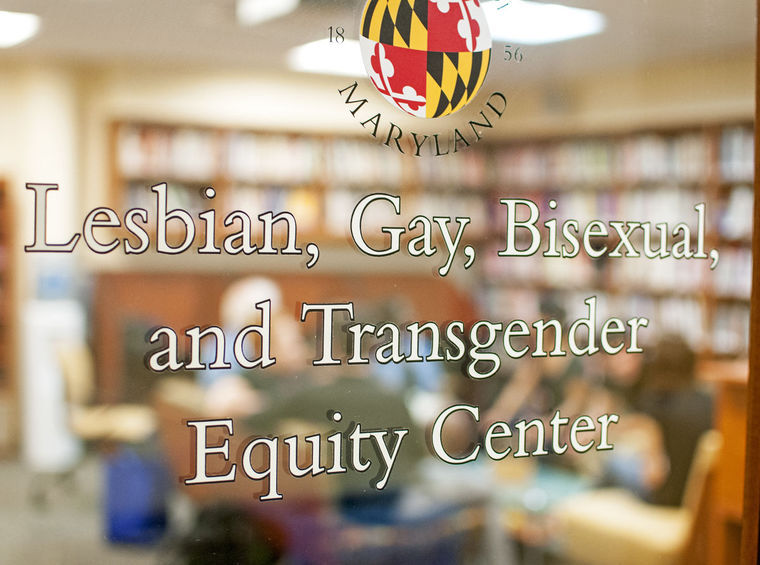Aravind Chandrasekaran’s parents still don’t know their son is gay.
But when the second-year graduate student travels home to India next winter, he plans to address “the elephant in the room.”
“Life is going to be different for them,” said Chandrasekaran, who identifies as a cisgendered gay man. “The thing that they thought I would never have the guts to come up and say, I will.”
Growing up in India, Chandrasekaran said he had difficulty coming to terms with his sexuality. Some of his friends’ parents forced them into therapy after they came out, he said, and other people reacted by saying “Are you sure?” and “Maybe you just haven’t met the right woman yet.”
He has been in America for a little more than a year and said he feels less inhibited when expressing who he is.
“I know in at least this part of the country I can be open about myself to anyone that I meet and that they won’t judge me,” he said. “That is important.”
At the University of Maryland, there are many opportunities for LGBTQ international students to become involved and feel included in the campus setting, said Nick Sakurai, the LGBT Equity Center’s leadership initiatives director.
This university’s LGBT Equity Center has a partnership with the International Student and Scholar Services office on the campus, which has an LGBT liaison to increase visibility for international students.
READ MORE: Human Rights Campaign names UMD a leader in LGBT Healthcare Equality
The center has tabled at orientation for international students and put on various events throughout the years, including a coffee hour called Queers Across Borders, Sakurai said.
“This is an area that we want to continue to do a lot of thought and growth what are better ways we can provide assistance, students are coming from all over the world,” Sakurai said.
Chandrasekaran has gotten involved with oSTEM, a national organization that works to promote LGBTQ leadership in STEM fields, and he tries to remain active in a Multicultural Involvement and Community Advocacy-sponsored LGBT group for Asian-Americans and Pacific Islanders.
Chandrasekaran said the first place he felt comfortable as himself was Taiwan when he was earning his master’s degree.
There, Chandrasekaran experienced his first Pride Month, where he said there were flags scattered across the campus, but that was it. While at this university, he attended the Pride Parade in Washington, which he said went on for four hours and “was more fun.”
READ MORE: LGBTQ conference focuses on intersectional identity, racial justice
Before traveling to Taiwan, he knew he was different, “but there was no name for it, nothing in the vocabulary” in his home country.
“Initially the identification I got was, ‘Maybe I’m bisexual,’ since that is the easy route to convince yourself you’re not totally straight, but you’re not totally gay,” he said. “It’s like you’re on the wrong boat to travel on, but the same boat to be on.”
Athinthra Sethurajan met Chandrasekaran during their undergraduate studies in India eight years ago.
Sethurajan asked Chandrasekaran about his sexuality in a casual phone call a few years ago and said he was shocked that he “almost immediately admitted that he is gay,” Sethurajan wrote in an email.
“After this incident I realized how difficult it was for Aravind to be in a patriarchal and homophobic society like that existed in India,” Sethurajan wrote. “I felt really bad that I was judgmental and I told him that I would give him my full support no matter what his decisions are.”
When Chandrasekaran had came out to classmates in India and Taiwan they questioned him.
“When I initially came out, I didn’t come across hatred but I came across reactions like, ‘Are you sure?’ and ‘Maybe you just haven’t found the right woman yet,’ and now that I think about it, it was hurtful back then, but it was their way of coming to terms with it,” Chandrasekaran said. “For most of my friends, I am probably the only queer guy they know.”
Now, he is more cautious to share his identity with others. Usually, he gages a person’s response by throwing current events like marriage equality into a conversation.
“Then I decide whether to come out or not,” he said. “So far everyone here has been really supportive.”
READ MORE: SGA passes three resolutions urging for more gender-neutral bathrooms on campus
To foster more support, Sakurai hopes to have four or five informal conversation hours that branch off Queers Across Borders during the upcoming spring semester.
“Instead of having a panel, [I] plan on using the name as a really casual conversation that includes talking about issues that international LGBT students might face but also a space for people to talk about travel, study abroad or international human rights,” Sakurai said.



